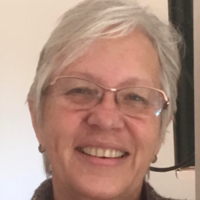
J
Carolyn Gomes,
Member of the Developing Country NGO Delegation to the Global Fund to Fight AIDS, Tuberculosis and Malaria since 2017, Alternate Board Member May 2019 – 2021 and currently Board Member since June 2021, has a distinguished record as Human Rights advocate. As Board Member and, since May 2020, a member of the Strategy Committee, Dr. Gomes helps to lead the Delegation work on issues brought to the Global Fund Board.
A medical doctor since 1980, Dr. Gomes worked in public and private medicine in Trinidad and Jamaica, served on the Executive of the Paediatric Association of Jamaica and was a Paediatrician in private practice until 2002 when she gave up practice to work full time on issues of human rights. From 2002-2013 Dr. Gomes was Executive Director of Jamaicans For Justice (JFJ), a non-profit, Citizens’ Rights Action Group which she helped found in 1999, and led to become a nationally, regionally and internationally recognized organization advocating against State abuse of rights and strengthening legislative and other provisions for the protection of rights.
Her work on human rights was recognized by the United Nations in 2008 and she was conferred with the Order of Jamaica (the nation’s 3rd highest honour) in 2009. Between 2014 and 2018 she worked as Executive Director of Caribbean Vulnerable Communities Coalition, in which role she was the organization’s chief executive and spokesperson, helping to determine and drive its strategic direction, vision and work in policy analysis, advocacy and resource mobilization to support the scale up of services to vulnerable communities and to build capacity among the regional network of civil society actors. She presently serves as an independent consultant and special advisor to a number of Caribbean NGOs, including as Special Advisor on International Relations to ProActividad, a Dominican Republic NGO, and Co-Chair of the Caribbean Centre for Human Rights based in Trinidad and Tobago.
Listen to the podcast on:

